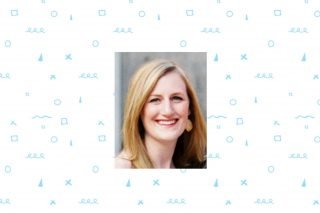Setting Clear Priorities and Knowing Your Purpose: Jennifer Eskridge’s Job Search Success Story

Share
Jennifer Eskridge’s biggest job search challenge was giving herself the time and space to rediscover her career purpose. Jennifer was able to re-engage with her professional network more intentionally, re-commit to her career path, and stick to a clear career focus, all while pursuing contract work. Read Jennifer’s success story for more career advice, plus, a few book recommendations that helped her self-reflect and narrow her focus.
What do you do for a career? Who do you work for?
I am a Community Outreach Educator at the Oregon Poison Center. The Oregon Poison Center is a free 24/7 emergency management resource for the public and health care professionals.
Located at OHSU, the Oregon Poison Center serves Oregon, Alaska and the territory of Guam and is staffed by nurses, pharmacists and doctors with specialized training. The mission of the Poison Center is to prevent poisonings and to minimize adverse effects of exposure to drugs, poisons, chemicals and natural toxins.
As Community Outreach Educator, I educate the community about poisons, prevention methods as well as promoting the services of the Poison Center. I accomplish this through community partnership, presentations, community events, social media and traditional public health education.
How long did it take you to find this job?
I spent some time contracting before I pursued this position. I found the change of pace refreshing and important to the job search process because it allowed me to explore what was out there and define what I was looking for in a job. Contracting also forced me re-engage with my professional network in a more intentional way. Marketing my business required a level of engagement that for me, naturally evolved into meaningful dialogue that ultimately played a vital role in shaping my job search.
How did you find your job? What resources did you use? What tool or tactic helped the most?
I found my current position through a popular online job board. I subscribed to several of these during my job search. Setting search parameters and subscribing to auto generated email notifications helped streamline the process. Setting aside time to regularly look through the searches and emails is really important because employers may only leave a position posted for a couple of days. If it’s your dream job, you don’t want to miss out!
I have not found traditional networking for job searching purposes applicable in every industry, especially those with highly regulated/structured hiring practices. In these situations I would offer a slightly different perspective—use your network to confirm who you are. As appropriate, in the application or interview, don’t be afraid to describe specific projects and partnerships with relevant organizations and people you have worked with in the past. If it’s a direct hit, the hiring manager will confirm your role with their colleague and hear about your good work. This is a bonus reference, and coming from someone your future boss already knows makes you a stronger candidate.
What was the most difficult part of your job search? How did you overcome this challenge?
The most difficult part of my job search was deciding what I really wanted to do. I had to give myself the time and space to work that out. Once the type of job I was after became clear, I could consider what it would mean for my personal life, career trajectory, etc. Understanding and accepting this before I even interviewed for the position I’m in now gave me a tremendous sense of peace about my future and confirmed I was on the right path.
What is the single best piece of advice you would offer other job-seekers?
Don’t give up on who you were made to be. If there is a purpose set within you, it is there for a reason. Have patience and stay focused. But most importantly, put in the work. Sometimes the job search is hard because we don’t have a clear enough picture of what we want to do. For me this meant self-reflection, reading, and hashing out what really mattered. I had to ask myself some tough questions and prioritize the aspects of a job that were most important. Once I was able to identify and commit to what was most important, the job search became clearer and the right opportunities surfaced. I also sought out friends, colleagues and connections who went through job changes and became curious about their process and what they learned. I’m a firm believer we can’t make these big life changes in isolation.
Book recommendations:
- Rising Strong – Brene Brown
- Designing Your Life: Building a Life that Works for You – Bill Burnett
- Let your Life Speak: Listening for the Voice of Vocation – Parker J. Palmer
Why do you love your job?
I love my job because the work I am doing and my workplace culture aligns with my values. I am passionate about health promotion and disease prevention and have the opportunity to impact my community directly. I love the variety in my work and the flexibility, creativity and freedom to identify and respond to community needs. My colleagues are very smart, engaged professionals who take pride in their profession and go the extra mile to serve the public. I love being part of something that meets an important need in my community.